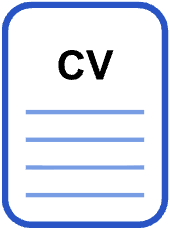Language is an instrument of human interaction used to share information across a variety of scenarios. Jess studies how language diversity and environmental factors shape how people learn, perceive, and process language. She is particularly interested in linguistic form—phonology and syntax—and how the mechanisms of language and cognition interact.
She approaches these questions through the study of American Sign Language (ASL), Lengua de Señas Nicaragüense (Nicaraguan Sign Language, LSN), and homesign systems. These communities provide a unique opportunity to examine how cognitive constraints shape linguistic structure, how perceptual mechanisms are influenced by language experience, and how language systems can develop without conventional input.
Her research is centered in the Language Creation and Learning Lab with Dr. Annemarie Kocab in the Department of Cognitive Science at Johns Hopkins University. Across her projects, she conducts linguistic analyses, examines moment-to-moment comprehension, tests visual perception, and collaborates on machine learning research to link human data with algorithmic approaches to visual recognition.
If you are interested in getting involved, click here!




